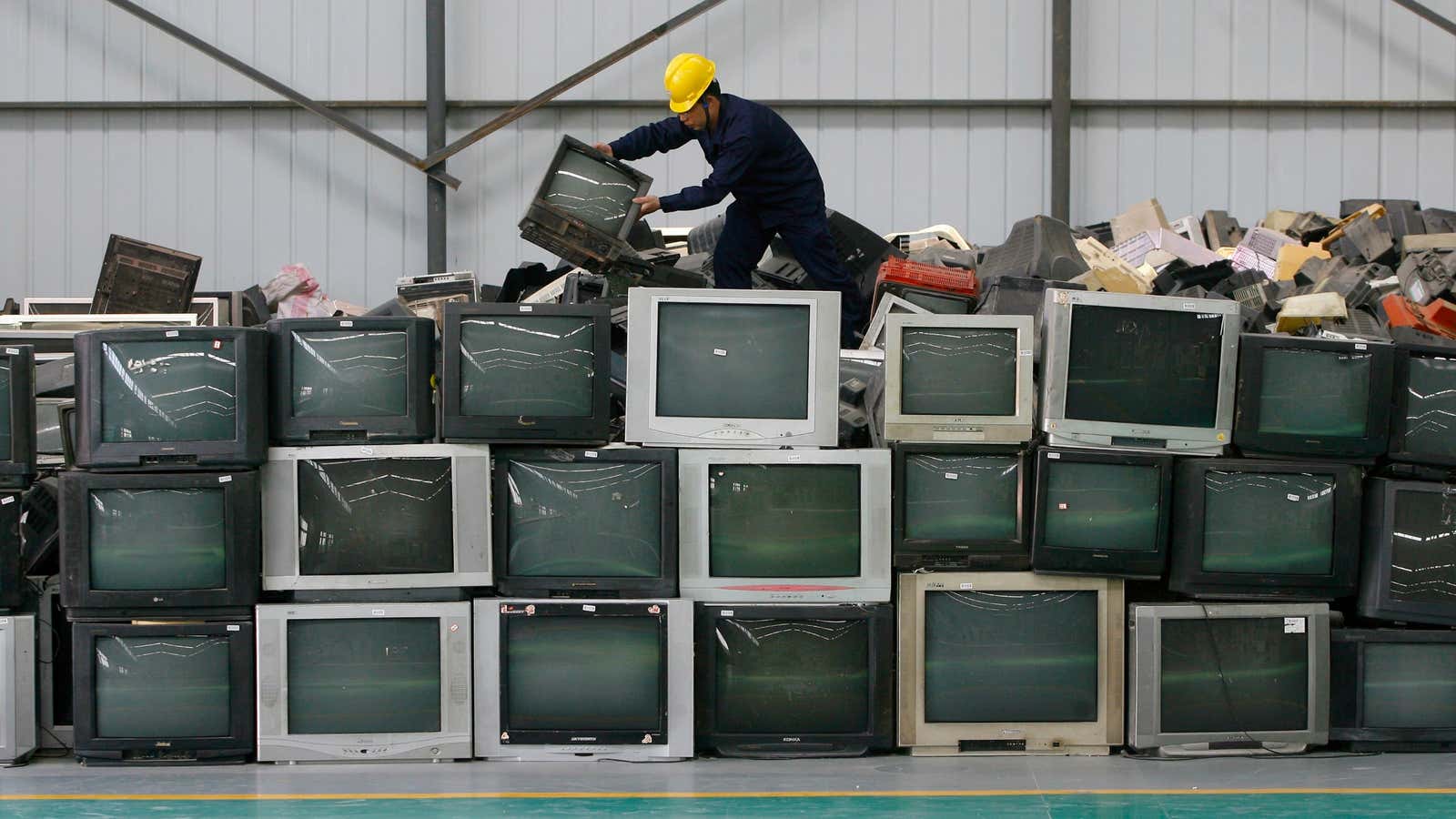Old computers and electronics have created huge dumps of electronic trash around the world, and as the back office to the world, India is particularly burdened—Bangalore alone generates 18,000 metric tons of e-waste a year, an amount growing 20% a year. And although India banned e-waste imports in 2010, tens of thousands of tons still land in the country illegally every year.
Attero Recycling was born when its founder just wanted to throw out a laptop. Rohan Gupta, a chemical engineering graduate, realized there wasn’t an environmentally friendly way to get rid of the equipment. He and his brother, Nitin, drew up a business plan in late 2007.
“If we were able to create the right ecosystem and the technology, there was a big business to be built,” Nitin Gupta told Quartz. India’s venture capitalists felt the same way, and the two brothers raised more than $6 million from Draper Fisher Jurvetson and NEA-IndoUS Ventures in August of 2008.
Attero is now collecting and processing about 1,000 metric tons a of e-waste a month from over 500 cities in India, and extracting precious metals like platinum, gold and selenium from the trash. Annual revenues nearly quadrupled over two years to $15 million in the fiscal year that ended this March, and they eked out their first profit that year. Compared to the world’s, and even India’s, e-waste heap, the company’s efforts are small, but the way they recycle is getting attention around the world. They’re now building processing plants in Mexico and Ireland to deal with local e-waste there.
Attero’s business model is based around the company’s 100,000-square-foot plant in Roorkee, a city in the state of Uttarakhand at the foothills of the Himalayas. It has on-site processing unit the Gupta brothers developed, which is essentially a smaller version of the e-waste recycling plants run by metals and mining giants that dominate the industry, including Belgium’s Umicore Group and Xstrata, which processes e-waste in a susididary in Quebec. The big plants, which rely on massive smelters to melt the metals in e-waste and then separate them, need 100,000 metric tons per year of waste to operate efficiently, and cost $100 million to build. In contrast, Nitin Gupta says Attero’s needs 2,000 metric tons of waste and costs just $2 million.
Their business model is also making India’s own e-waste industry somewhat safer. Two-third of Attero’s e-waste in India comes from manufacturers such as Samsung and Wipro and outsourcing giants like Genpac and Infosys. Much of the remaining third comes from India’s “informal sector,” a commonly-used euphemism that refers to the poor adults and children who collect and pick through trash.
Traditionally, these collectors pull apart cast-off electronics and dip the printed circuit boards, where the most valuable metals are, into cyanide and other toxic chemicals to leach out elements like gold and copper. Safety equipment is rare or nonexistent, and the chemicals often leak into local water tables, an environmental and health hazard that alarms Greenpeace, children’s rights advocates and the Indian government.
Attero buys printed circuit boards from these collectors at a higher price than the collectors would have earned if they stripped metals from the boards using toxic chemicals themselves. The company still makes money because its mechanical recycling process recovers more metal, and the trash collectors pocket more than they would have recycling metals themselves.
Additional investors have jumped on board, including World Bank’s International Finance Corp. fund, which invested $5 million. Attero is “the only e-waste recycling company in India, and potentially in any developing market, that goes beyond the e-waste collection and dismantling to actually extract the precious metals,” said Pravan Malhotra, senior investment officer with IFC. Other companies in India and around the world that collect e-waste strip out the circuit boards and ship them off to the big smelters, he explained, a low-tech, low-profit business.
Maybe that’s why Attero’s small, local recycling model is gaining attention from the industry giants. The company has been fielding calls from “strategic investors,” big players already in the e-waste business who want to partner up, Nitin said, but the brothers aren’t interested. “We think we’re building something pretty valuable ourselves,” he said.
